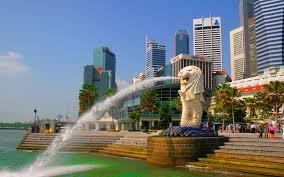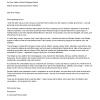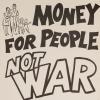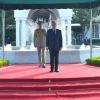Dear Mr Prime Minister
We are in the midst of a crisis where the people no longer trust their government, and the government no longer cares about regaining their trust.
There are two clear signs that the present situation has reached crisis proportions, that it is not just an affective divide, not just an emotional estrangement between your PAP leadership and the people.
Firstly, the people are resorting to forms of high-visibility, high-risk protest never seen before, such as graffiti writ large on public buildings, persistent, strident online criticism despite stern government warnings and threats, an increased frequency of mass gatherings held at the Speakers’ Corner, as well as increased hostility shown at these gatherings.
Secondly, the protest is not confined to a small group of young dissidents emboldened by Internet power, but is spreading to involve large segments of the population, as seen in a senior citizen’s active contribution to the angry graffiti, and in a public outpouring of sympathy, in the form of financial help, for the blogger Roy Ngerng who is being sued by you for defamation.
How did this crisis arise in the first place?
With utmost respect, Sir, I must point out that it is ultimately your inability or unwillingness to listen to the people. After your initial show of contrition and your ardent promises of change, following the shock of the General Election of 2011 (a change of heart which must have astonished as well as heartened a lot of Singaporeans like myself), your government now seems to be hardening its position and going back to the old PAP reliance on a climate of fear maintained by the deployment of the famous PAP instruments of control, notably the defamation suit.
In all fairness to you, Sir, the defamation suit, per se, is a legitimate instrument in any law-governed society, allowing anyone to seek redress and justice. Hence, making use of this means to defend your reputation is entirely within your rights, as indeed, you would be the first to affirm that it is the right of any blogger to sue the government if he or she thinks fit. But in Singapore, alas, it is by no means such a simple, straightforward matter. For Singaporeans have long got used to a certain belief that colours all their perceptions, namely, that here, there is no level playing field but one massively tilted in favour of an all-powerful, vindictive government that will have no qualms about reducing its opponents to bankruptcy. Hence while you see yourself as simply going by the rules, Singaporeans see you as the PAP juggernaut ready to mow down the little people in its path.
Again in fairness to you, Sir, it can clearly be seen that you and your colleagues have, since the debacle of 2011, made great efforts to improve the lot of the people. Indeed, anyone can see the improvements, continuously planned or implemented, in the many areas of jobs, transport, housing, education, recreation. But the hard truth is that the expectations of the people, especially the young, go well beyond material needs, to encompass the long denied need for freedom of expression, open debate and public assembly. Unlike the older generation who were grateful for simple amenities such as modern sanitation and clean streets, the new, better educated, globally-exposed, Internet population demand much more.
Indeed, you probably are tempted to call them the spoilt, blasé, so-what generation that is taking for granted these material achievements which would have been appreciated anywhere else in the world. The truth, Sir, is more sobering: they are seeing these so-called achievements as no more than what is owing to them from leaders who have chosen to pay themselves handsomely to do their job. Moreover, the skepticism bred by distrust has cast all these laudable efforts of your government as just self-serving strategies to advance party interests and stay in power. I have to say that I am somewhat dismayed by the pure vitriol of your more extreme online critics who gleefully twist everything that you say and do to serve their cynicism. It is a sad measure of what can happen when trust is gone.
In short, distrust is something so emotionally charged that it is guided by its own perilous logic and propelled by its own alarming momentum. It has already widened the original disconnect between the PAP and the people into an almost unbridgeable chasm.
What can be done to deal with this unprecedented crisis of trust before it escalates further and reaches a point of no return, something which obviously neither side wants?
For a start, there are some hard truths that have to be faced by the PAP, no matter how unpalatable:
1) For the change to be truly beneficial to the people, it cannot be something merely concessionary, much less cosmetic or superficial, such as the leaders giving up the traditional austere all-white uniform for something a little more colourful, so as to blend in with the crowd; abandoning their usual stern, distant style for greater friendliness and smiling approachability; purging their image of all signs of elitism through a more visible presence at hawker centres or the MRT; peppering their speeches with humorous personal anecdotes and admiring observations about ordinary Singaporeans, such as this young person with little education who made good or that hardworking teacher who went out of her way to help her students, etc.
True change goes well beyond all these surface overtures. It has to be no less than paradigmatic, enacted at a much higher level of sincere purpose backed up by sincere action, no matter how difficult. Only then can there be an overhaul of old mindsets and habits of governance, no matter how valued.
Now I will have the temerity to suggest, Sir, that the PAP leadership had, not too long ago, missed a certain rare and valuable opportunity to show the people its sincerity for this kind of change. Shortly after the watershed 2011 General Election, some ex-political detainees made a request for a commission of inquiry to look into the allegations that the government had made against them, a request which was brusquely dismissed. To accede to the request would of course have shocked PAP diehards and the majority of Singaporeans, simply because it would have been so uncharacteristic of the PAP style.
But if it is true that extraordinary problems call for extraordinary solutions, it would have been precisely this act of unaccustomed humility, courage and sensitivity to the people’s feelings, that would have conveyed unquestioned sincerity and honesty, and provoked positive reaction from the people. And if, additionally, there were gracious acceptance of the verdict of the inquiry, even if it meant an apology and the need to make amends, that would have been a gesture large and empathetic enough, to win over even the most vocal critics. It would certainly have begun the process of creating, for the first time in the history of the PAP government-people relationship, a nexus of understanding and reciprocity. (I have dealt rather lengthily on this example simply because to this day, I fervently wish that it had happened)
2) As long as the crisis of trust persists, Sir, all your words of advice, caution and encouragement to the people, all the statements you are making about the need for good politics and good policies, for constructive debate, for all Singaporeans to work together in harmony and goodwill to build a strong, prosperous, stable society where everyone will be cared for, which everyone can call home, etc, etc, will only fall on deaf ears, or worse, be construed as no more than PR pronouncements of much pretension and little worth.
3) The old era that may be aptly called The Lee Kuan Yew Era, is now over, and for the succeeding PAP leaders to be seen as clinging to it despite their obviously good intentions and efforts to respond to the unstoppable forces of change in the new era, is to be caught in a neither-here-nor-there, politically ill-defined domain that gets pushed and pulled both ways. It gives the unfortunate impression of lack of leadership direction, which is invariably and unfavourably contrasted with the strength, conviction and vision of the first Prime Minister, Mr Lee Kuan Yew.
Hence, while Singaporeans attribute Singapore’s amazing success in the world to Mr Lee’s purposeful style, they are less ready to do the same for the two succeeding Prime Ministers whose achievements are by no means inconsiderable. While Singaporeans were ready to accord Mr Lee much respect and trust (though with scant affection), they perceive the younger leaders after him as less deserving of these, and therefore not entitled to lecture and scold them as Mr Lee used to do with impunity. If Lee Kuan Yew alone received the famously humongous ministerial salary increase, the people would not have minded, but when the rest also did, they were outraged.
4) What had worked well in the old era may no longer be relevant today, or worse, may even be damaging. When Mr Lee Kuan Yew liberally used the defamation suit against his critics, one of the reasons he gave (if I remember correctly) was that he wanted to punish them for implying government corruption, and thus eroding the trust of the people, which he said was necessary for the government to do its work.Today, in a twist of supreme irony that would have incensed Mr Lee, Singaporeans see the defamation suit itself, and not the act that has entailed it, as the very cause of the erosion of trust. A few more applications of this once effective instrument of control, even if legally justifiable, would surely damage the PAP cause further, in the highly charged atmosphere of the new Singapore.
5) While Singaporeans appreciate the original PAP principles of hard work, self discipline, responsibility and incorruptibility, they can see that the inflexibility of style based on rationality, reason, head-over-heart logic and letter-of-the-law adherence may be woefully inadequate to deal with a new era where politics is necessarily complex, messy and noisy. This is because human nature, ultimately, cannot be ignored, and has to be factored into any political equation.
So, in terms of practical action, what can be done about the present growing crisis of trust in our midst?
Again, Sir, I will beg to be presumptuous, and make the following suggestions:
1) You, and only you, Sir, can initiate the process leading to the solution of the problem. In theory and ideally, the three forces for major change in any society, namely, the government, the institutions and the people, work together. But in Singapore, unfortunately, the last two are helpless. Only the dominant PAP can initiate change and sustain it. Hence, whether you like it or not, Sir, if you genuinely seek a restoration of trust, you have first to go it alone, signal your new attitude to the institutions and the people, and patiently encourage them to take the cue and play their part. It will be a long, strenuous process.
A less-than-genuine effort would be something like launching a high-profile project such as the great Singapore Conversation, watch it go through the motions and various stages of a set timetable, and then shrug off the indifferent results.
2) There are some voices in your government, Sir, and some staunch PAP loyalists who have bravely, albeit gently, tried to draw your attention to the growing divide between you and the people. Professor Tommy Koh some time back actually commented that the use of the defamation suit was not exactly commendable or useful in the long run, and recently Dr Lily Neo calmly and tactfully suggested during a parliamentary sitting that you ought to be listening more to the people and communicating better with them. There must be many in your camp who feel the same way but are reluctant to speak up. It may be a good thing to start listening to them in order to start listening to the people.
3) In the end, you and your colleagues who have for decades been skilfully solving tough, bread-and-butter problems faced by the nation, will be in the best position to deal with this equally serious problem of trust. It is of course a completely different problem, but with the same application of efficiency, determination and dedication, it will no doubt be one more crisis solved, or at least defused, for the nation to move on.
This is an epochal time in Singapore’s history, when one era is fading into the past, and a new one is being transitioned into. If the present crisis of trust is not resolved, it will become even more intractable for the next Prime Minister and the new generation of leaders, for by then the crisis would have deteriorated into meltdown. In the absence of the people’s trust, effective government is virtually impossible, as every leader knows. To prevent this from happening, only you, Sir, can pave the way for a new understanding and reconciliation. It is a huge, onerous, daunting and certainly unenviable task of damage control, repair and restoration. But it is surely top priority, if only because the alternative would be just too scary.
Yours sincerely
Catherine Lim
















